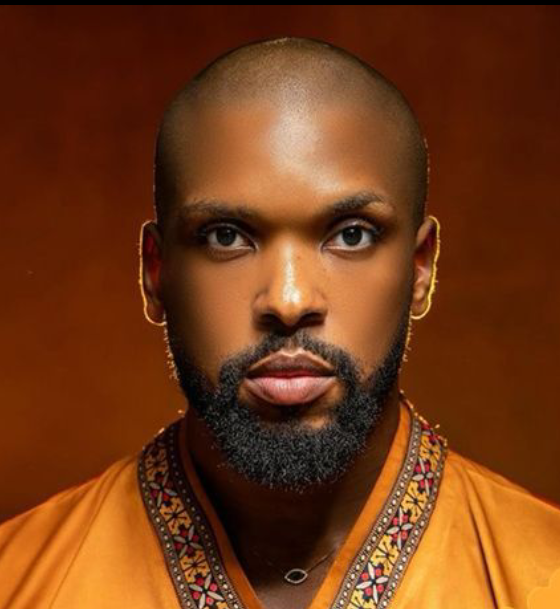
“First-Class Worship for Latecomers?” – Actor Charles Born Calls Out Lagos Churches Over Alleged Classism in Seating Arrangements

Nigerian actor Charles Born has stirred up a heated conversation on social media after calling out Lagos churches over what he described as “classism” in their seating arrangements. The actor, in a strongly worded Instagram post, criticized the practice of reserving the front rows for people who often arrive late while early worshippers are relegated to the back, questioning the logic and fairness of such treatment in a religious setting that preaches equality and humility before God. His comments have since sparked debate across online communities, with many weighing in on whether churches in Lagos, and Nigeria at large, have slowly become more about appearances, status, and class rather than spirituality and inclusiveness.
Charles Born expressed his frustration in clear terms, noting that churches announce service times for 9 a.m., yet those who arrive ahead of time, sometimes as early as 8:30 a.m., are asked to sit behind, while the first three rows of seats are reserved for late arrivals, often prominent individuals, wealthy members, or people deemed important by church officials. He highlighted the irony of such a system, where punctual worshippers who prioritize timeliness and reverence for God’s house are overlooked for others who, despite arriving more than an hour late, are ushered into the most visible and prestigious seats. “Please make it make sense,” Born wrote, adding that he was genuinely seeking a reasonable explanation for what has become normalized in many churches across Lagos.
The actor’s post immediately struck a chord with Nigerians online, many of whom shared their personal experiences in churches where seating is determined not by arrival time, but by perceived social status or financial weight. Several commenters pointed out that in some Lagos megachurches, ushers are instructed to keep certain sections or rows empty until “special guests” arrive, regardless of the time. For some, this practice has become a subtle but painful reminder that churches—supposedly the most egalitarian of spaces where “all are equal before God”—are not immune to the realities of classism and social hierarchy. Others recalled being embarrassed or redirected when trying to sit in seats that were deemed “not for everyone,” an experience that left them questioning whether the true spirit of worship was being overshadowed by a need to cater to the influential.
Born’s critique also carried a deeper undertone, suggesting that classism is not something confined to corporate offices, schools, or politics alone, but has also crept into spiritual spaces where it should ideally hold no ground. He emphasized that salvation is a personal journey and a direct relationship with God, implying that outward displays of favoritism in the church contradict the essence of Christianity. His post concluded with a striking reminder: “Classism is a human construct you think wouldn’t show up at certain spaces, but then again ‘human’ is the operative word here no? Thank God salvation is personal and a relationship with God is very individual.”
As expected, reactions to his statement were mixed. Some agreed wholeheartedly, praising Born for boldly speaking on an issue many have long noticed but felt reluctant to address publicly. They argued that churches should focus more on spiritual equality and less on social hierarchies, stressing that favoritism in seating contradicts the biblical teaching that “God is no respecter of persons.” For these voices, the practice of seating latecomers in prime spots simply because of their financial or social influence exposes a contradiction that makes religion appear transactional and status-driven.
Others, however, defended the practice, suggesting that churches sometimes reserve front seats not out of classism, but for organizational purposes or in anticipation of guests who may be part of the program. Some claimed that in large congregations, pastors, elders, or invited dignitaries are given designated seats at the front for ease of access and visibility, and that this should not be interpreted as discrimination against ordinary members. A few also pointed out that prominent figures who donate heavily to the church or sponsor projects may be accorded certain privileges, which is seen by some as a way of honoring their contributions.
The controversy raises broader questions about the role of churches in society and whether they are truly living up to the ideals of fairness, humility, and inclusiveness. In a city like Lagos, where social class divisions are glaring, the church is often regarded as one of the few spaces where such distinctions should dissolve, offering all believers an equal opportunity to connect with God regardless of wealth, fame, or background. Yet, as Born’s observation shows, even sacred spaces are not completely shielded from the realities of class and human behavior.
It is not the first time such concerns have been raised. Over the years, Nigerians have debated issues such as “VIP treatment” in churches, pastors’ preferential relationships with wealthy members, and the growing commercialization of religion. Instances like Born’s highlighted complaint only reignite ongoing debates about whether churches are gradually mirroring the society they are meant to reform. For critics, this is a worrying trend, as it risks alienating sincere worshippers who may feel overlooked or undervalued in favor of the influential.
The larger implication is that faith communities may need to reexamine how they balance order, hospitality, and respect for guests with fairness and inclusivity for all members. In doing so, they would need to revisit the fundamental principles of their faith, where humility and equality stand at the forefront. After all, the very essence of the church is to provide a sanctuary where the high and low, the rich and poor, the famous and unknown, stand shoulder to shoulder in worship without fear of judgment or favoritism.
Charles Born’s public call-out, though uncomfortable for some, is likely to spark further discussions in church circles across Lagos and beyond. Whether or not leaders take steps to address it remains to be seen, but what is clear is that his message resonates with a growing number of people who are calling for transparency, fairness, and a return to the true meaning of fellowship. As debates continue, one truth rings louder: if salvation is personal, then no seat in any church should be reserved based on status, and every worshipper—whether arriving at 8:30 a.m. or 10:30 a.m.—should be welcomed equally in the presence of God.


